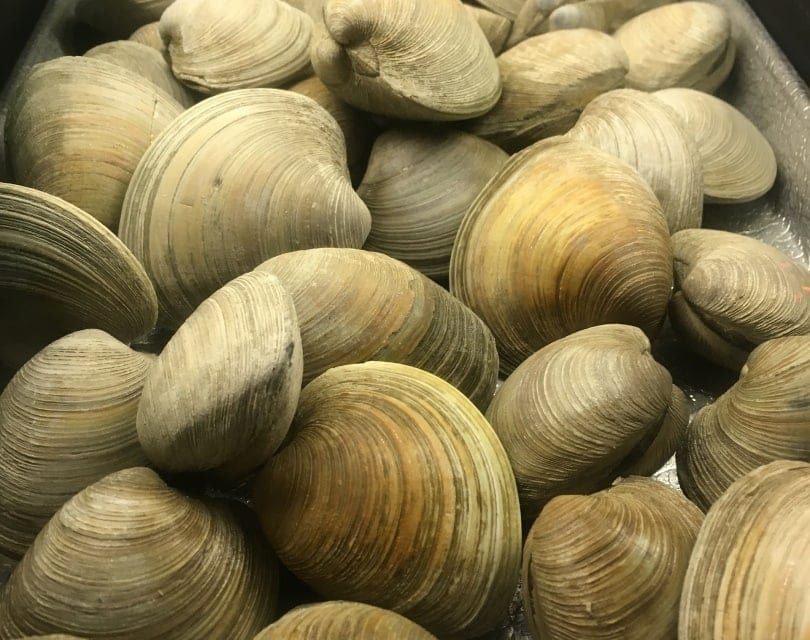Can Dogs have clams

Dogs are known for their curious nature, especially when it comes to food. As responsible pet owners, it’s crucial to ensure that what we feed our furry companions aligns with their nutritional needs and doesn’t pose any health risks. When it comes to seafood, clams often come into question. Can dogs indulge in this ocean delicacy safely? Let’s delve deeper into this intriguing topic to uncover whether clams can make a palatable treat for our canine friends.
Understanding Canine Nutrition:
Before determining whether clams are suitable for dogs, it’s essential to understand their dietary requirements. Dogs are primarily carnivores, and their diet should consist predominantly of animal-based proteins. However, they can also benefit from a balanced diet that includes certain fruits, vegetables, and grains in moderation. Proteins, fats, carbohydrates, vitamins, and minerals are all essential components for maintaining a dog’s overall health and well-being.
Nutritional Value of Clams:
Clams are nutritious shellfish that offer various health benefits for humans, primarily due to their rich protein content, low calorie count, and abundance of vitamins and minerals. They are an excellent source of protein, providing essential amino acids necessary for muscle growth and repair. Clams also contain omega-3 fatty acids, which support heart health and reduce inflammation. Additionally, they are rich in vitamins B12 and C, as well as minerals like iron, zinc, and selenium, all of which play vital roles in canine nutrition.
Potential Benefits for Dogs:
Given the nutritional profile of clams, incorporating them into a dog’s diet can offer several potential benefits. The protein content supports muscle development and provides sustained energy levels. Omega-3 fatty acids promote a healthy coat and skin, reducing itching and inflammation. Vitamins and minerals contribute to overall immune function, bone health, and vitality. Including small amounts of clams as an occasional treat can supplement a dog’s diet with these valuable nutrients.
Considerations and Risks:
While clams can provide nutritional benefits, there are several considerations and risks to keep in mind before offering them to your dog. Firstly, some dogs may have allergies or sensitivities to shellfish, so it’s crucial to introduce clams gradually and monitor for any adverse reactions such as itching, vomiting, or diarrhea. Secondly, clams should always be served fresh and properly cooked to reduce the risk of bacterial contamination, which can cause food poisoning in dogs. Avoid feeding raw or spoiled clams to your pet.
Portion Control and Preparation:
When feeding clams to your dog, moderation is key. While they offer nutritional value, excessive consumption can lead to digestive upset or an imbalance in your dog’s diet. As a general guideline, treats should make up no more than 10% of your dog’s daily caloric intake. When preparing clams for your dog, remove the shells and any potential choking hazards. It’s best to steam or boil clams without adding any seasoning or sauces that may contain ingredients harmful to dogs, such as garlic or onions.
Alternative Sources of Nutrients:
If you’re unsure about feeding your dog clams or if they have allergies or dietary restrictions, there are plenty of alternative sources of nutrients you can consider. Lean meats like chicken, turkey, or fish are excellent protein sources for dogs. Fruits such as blueberries, apples, or bananas can provide vitamins and antioxidants. Vegetables like carrots, green beans, or spinach offer fiber and essential nutrients. Always consult with your veterinarian to determine the best diet for your dog’s specific needs.
Conclusion:
While clams can offer nutritional benefits for dogs, they should be introduced cautiously and in moderation. Their protein, omega-3 fatty acids, vitamins, and minerals can contribute to a well-rounded diet and support your dog’s overall health and vitality. However, it’s essential to consider potential allergies, proper preparation, portion control, and alternative sources of nutrients. As with any dietary changes, consult with your veterinarian to ensure that clams are suitable for your dog and fit within their individual nutritional requirements. With proper care and attention, you can safely incorporate clams into your dog’s diet as an occasional and enjoyable treat.





